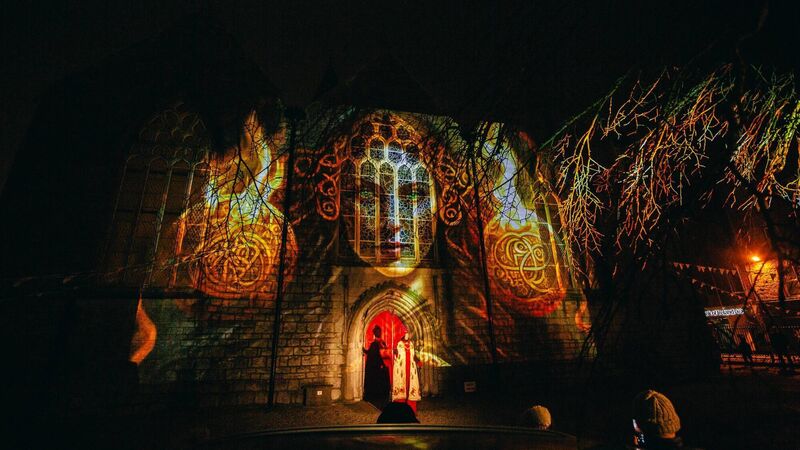Joyce Fegan: The story of Brigid and Patrick is one of patriarchy on this land

Brigid by Jef O'Riordan projected onto St. Nicholas church in Galway. Picture: Steve O'Connor.
Try from €1.50 / week
SUBSCRIBE
Brigid by Jef O'Riordan projected onto St. Nicholas church in Galway. Picture: Steve O'Connor.
All this talk of Brigid. We’re used to her day being February 1, the start of spring, the crosses, and now this year things have ramped up, there’s more chat about her than usual. They’re going on about whether she was a saint, was she even canonised, was she a goddess maybe, what even is a goddess, was she an Irish goddess though? Some people are even questioning whether the woman existed at all.
All that doubt and confusion and they’ve only gone and made a second day, a public holiday, this Monday, in her honour.
Already a subscriber? Sign in
You have reached your article limit.
Annual €130 €80
Best value
Monthly €12€6 / month
Introductory offers for new customers. Annual billed once for first year. Renews at €130. Monthly initial discount (first 3 months) billed monthly, then €12 a month. Ts&Cs apply.
CONNECT WITH US TODAY
Be the first to know the latest news and updates
Newsletter
Sign up to the best reads of the week from irishexaminer.com selected just for you.

Select your favourite newsletters and get the best of Irish Examiner delivered to your inbox
Tuesday, February 10, 2026 - 12:00 PM
Tuesday, February 10, 2026 - 5:00 PM
Tuesday, February 10, 2026 - 10:00 AM
© Examiner Echo Group Limited